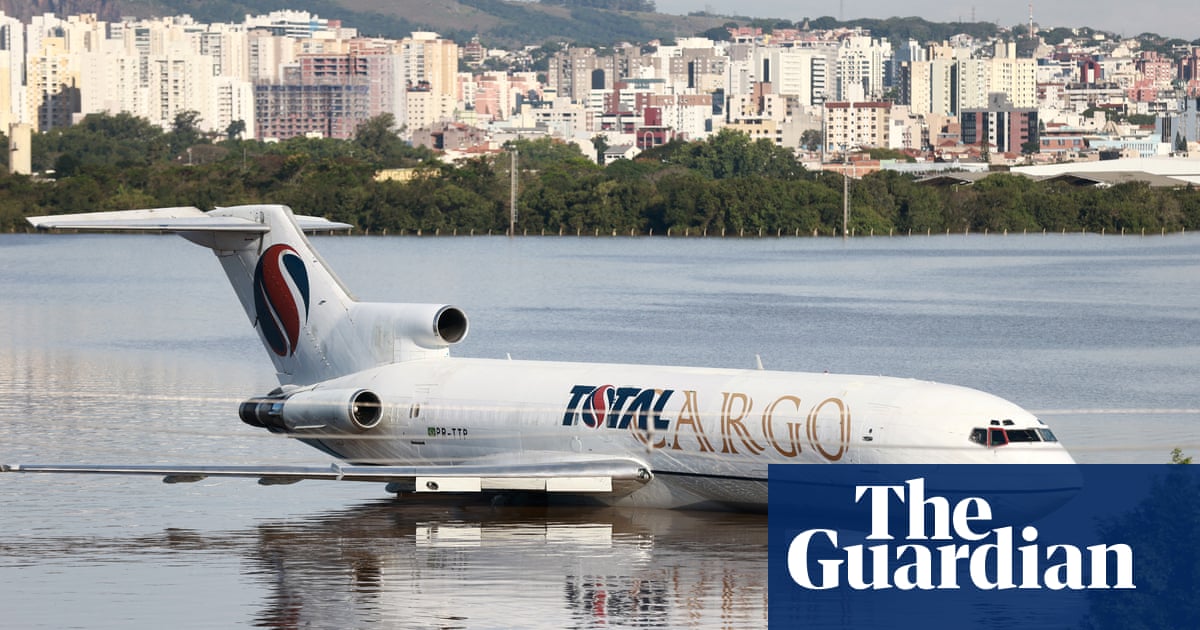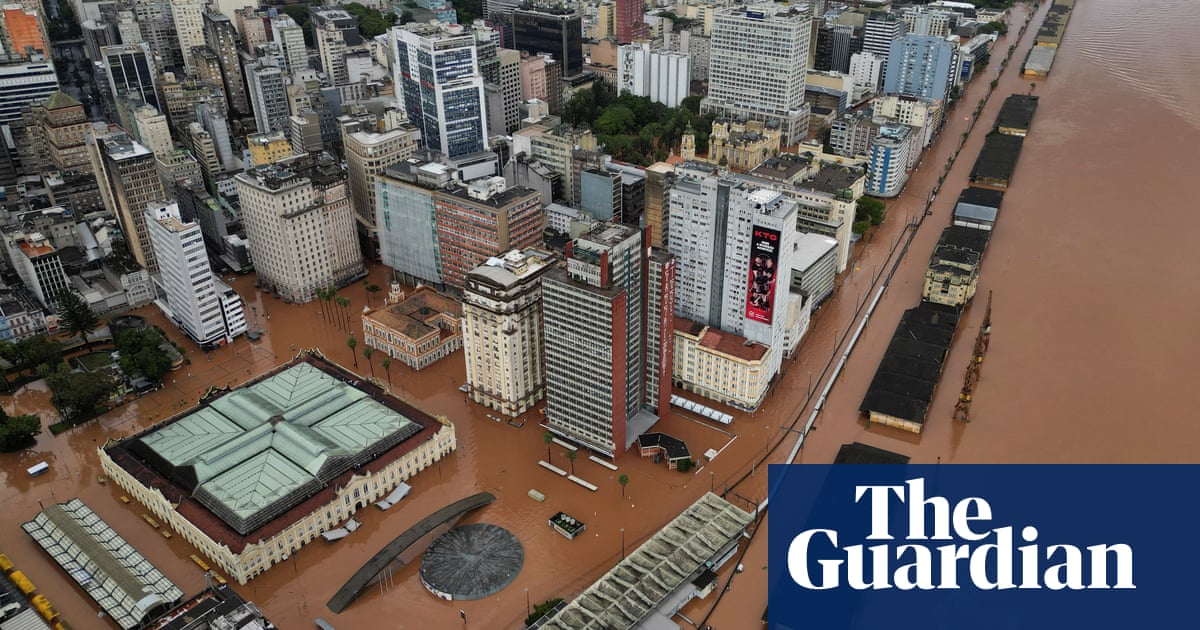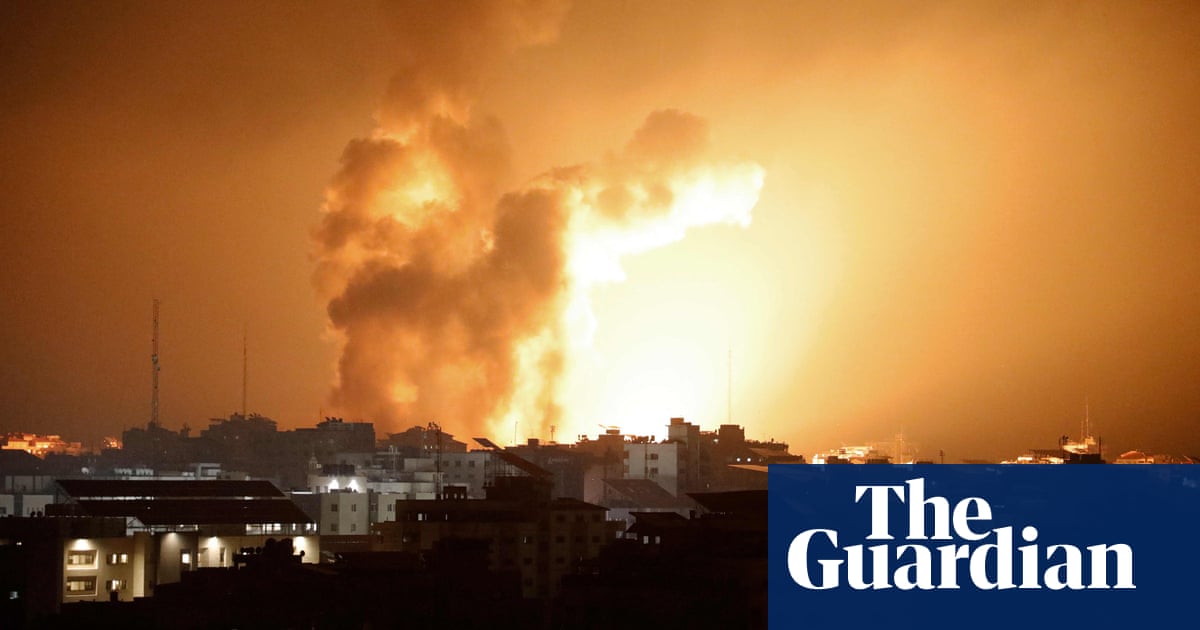
The death toll from what authorities call the worst climate disaster ever to strike southern Brazil has risen to 90, after ferocious rain flooded huge stretches of Rio Grande do Sul state, displacing more than 155,000 people and forcing the closure of the main airport in the country’s fifth biggest city.
Photographs of the Porto Alegre airport, one of Brazil’s busiest, showed its main terminal had been completely inundated and a cargo plane parked in an expanse of water next to a pair of semi-submerged boarding stairs.
At least 361 people have been injured and 131 are missing as a result of what state governor Eduaro Leite called his state’s “biggest ever climate catastrophe”. More than 48,000 people are living in dozens of shelters.
“The state is facing a war-like situation,” Leite told reporters on Sunday as President Luiz Inácio Lula da Silva flew to the region to oversee rescue efforts.
“This is one of those events that will go down in history,” added Leite, who has declared a state of emergency in 397 of his state’s 497 towns and cities.
One of the worst-affected cities is the state capital, Porto Alegre, which sits along the Guaíba river. The waterway hit a record level of 5.33 metres (17.5ft) on Sunday morning – even higher than during historic 1941 floods when it rained for more than 20 days straight.
“Porto Alegre has been devastated, leaving virtually the whole city without its supply of water, electricity and food,” the newspaper O Globo reported on Tuesday, describing “a situation of unprecedented sorrow” in the flooded city of 1.4 million inhabitants.
Local journalist Rodrigo Lopes posted a video in which he appeared to be paddling through usually bustling streets in a canoe, past a flooded shopping centre and bank. “The silence is astonishing in a region that is normally packed with people … and all we can hear is the sound of our boat’s oar,” Lopes said as his vessel moved through the coffee-coloured waters. “The heart of Porto Alegre is wounded,” he wrote.
Four major highways that connect the capital with the rest of the state have been completely blocked while the stadiums of the region’s two biggest football teams, Grêmio and Internacional, have also found themselves underwater forcing the clubs to call for games to be suspended.
“Do not go out on the roads … only if it is absolutely necessary … The whole of Rio Grande do Sul is chaos,” the state transport secretary Juvir Costella told the local broadcaster Rádio Gaúcha.
Across Rio Grande do Sul, an estimated 1.3 million people have been affected by the disaster caused by a week of intense rain, according to local authorities.
A local photographer who visited the Vale do Taquari, a badly-hit municipality about 100km from the capital, described catastrophic scenes of destruction. “The houses looked like toys that a child had pulled apart,” Jefferson Botega told Zero Hora.
Speaking on Sunday, the governor said it was not the time to look for culprits or politicize the crisis and called for a Marshall Plan-style reconstruction package to deal with what he described as a “post war” situation. But there are growing questions over Porto Alegre’s lack of readiness for the flooding and mounting anger over the human toll the rains have taken.
“Porto Alegre did not invest a single penny in flood prevention in 2023,” the local newspaper Zero Hora announced on its front page on Tuesday alongside a photograph of an elderly man in an orange life jacket being rescued from his home after it was swallowed up by more than a metre of brown water.
Erika Hilton, a prominent left-wing politician, said it was obvious that such investments “would not have avoided the tragedy in Porto Alegre – this is an unprecedented climatic event”.
But government inaction had made things worse, she wrote on social media. “[And] this has repercussions. The catastrophe was inevitable but had these investments been made then perhaps fewer people would have lost their belongings, their homes, their lives. And we need to talk about this.”
On Tuesday afternoon, there was little indication that Rio Grande do Sul’s moment of misery was near its end. Authorities warned that the flood water that has overwhelmed the state capital would soon begin moving elsewhere, swamping surrounding areas from which residents were being evacuated. Meanwhile, weather forecasters predicted new storms and heavy rain in the southern section of the state.










